Xi Jinping: a ‘responsible leader’ in Switzerland?
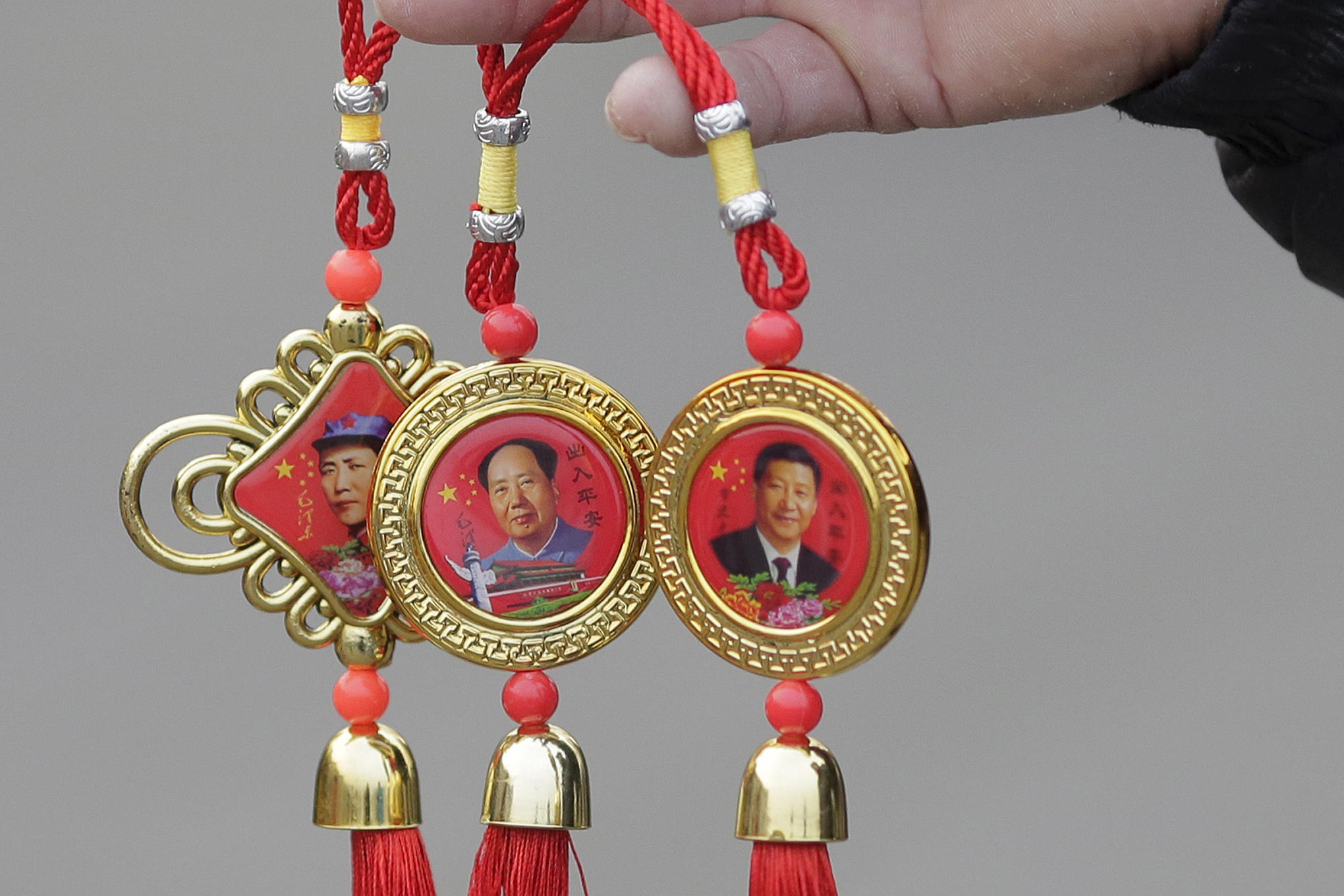
On a state visit to Switzerland, Chinese president Xi Jinping has the chance to demonstrate a commitment to free-trade agreements and the United Nations.
China has been asserting leadership on climate change but remains a source of tension in the West particularly for its worrisome record on human rights that includes its crackdown on Tibet, cyberhacking of foreign business and institutions and growing assertiveness in the South China Sea.
The leader of the world’s most populous country, who arrived on Sunday and will spend time in the Swiss capital Bern, is headed to the annual meeting of the World Economic Forum (WEF) in Davos, the UN in Geneva and the International Olympic Committee in Lausanne.
“The mere fact that this state visit is taking place is an event in itself,” says Blaise Godet, former Swiss ambassador to China and president of the French-speaking branch of the Swiss-Chinese Chamber of CommerceExternal link. “The Chinese president is one of the most sought-after men in the world. This visit is certainly a great opportunity for Switzerland.”
It is a sentiment shared by Klaus Schwab, founder of the WEF, which has Xi Jinping as its star guest for its 2017 meeting in Davos. It is indeed the first time that a Chinese president takes part in the annual jamboree of global leaders.
At a press conference on Tuesday, Schwab said he expected Xi to explain how China intends to assume the role of a responsible and receptive leader in world affairs.
“China is keen to change its image from a country that only benefits from free trade and globalisation [an accusation levelled by US president-elect Donald Trump] to one that is willing to assume international responsibilities,” says Antoine Kernen, China specialist at the University of Lausanne.
“An example of this shift is the Paris climate agreement ratified by China last September. This is in contrast to Donald Trump’s repeated scepticism about global warming, having tweeted in 2012 that it was a concept invented by the Chinese to prevent the US industry from being competitive.”
The concept of global warming was created by and for the Chinese in order to make U.S. manufacturing non-competitive.
— Donald J. Trump (@realDonaldTrump) November 6, 2012External link
Xi Jinping also has the opportunity to demonstrate the importance of another one of Trump’s bugbears: the United Nations. There is ample scope for this, considering that the new Secretary-General of the United Nations, António Guterres, will be present at Davos and Xi Jinping is also expected to speak at the UN’s European headquarters in Geneva, according to the China Global Television Network.
#XiJinpingExternal link to be the first Chinese president to attend the World Economic Forum; will deliver speech at opening ceremony #WEF17External link pic.twitter.com/SIOkrMxUv7External link
— CGTN (@CGTNOfficial) 11 janvier 2017External link
According to Godet, China, like Russia, is an “ally of Geneva International” as it is seen as a counterweight to EU headquarters Brussels, as well as New York, the UN’s executive seat.
His view is shared by Gerald Béroud, creator of Sinoptic, a website dedicated to Swiss-Chinese relations. He points out that China provides one of the largest contingents of peacekeepers for UN peacekeeping operations and is the second-largest contributor to the peacekeeping budget after the US.
Béroud also notes that China has four ambassadors in Switzerland: one in Bern and the rest in Geneva.
Global uncertainty
“There are too many uncertainties as personified by Donald Trump, among others,” says Lanxin Xiang, professor at the Geneva-based Graduate Institute of International and Development Studies.
“During the first half of this year, China should be more reactive on the international scene. Hence, it will be pleased to see other countries react to this uncertainty as well. Because there is still room to work with the EU and other countries.”
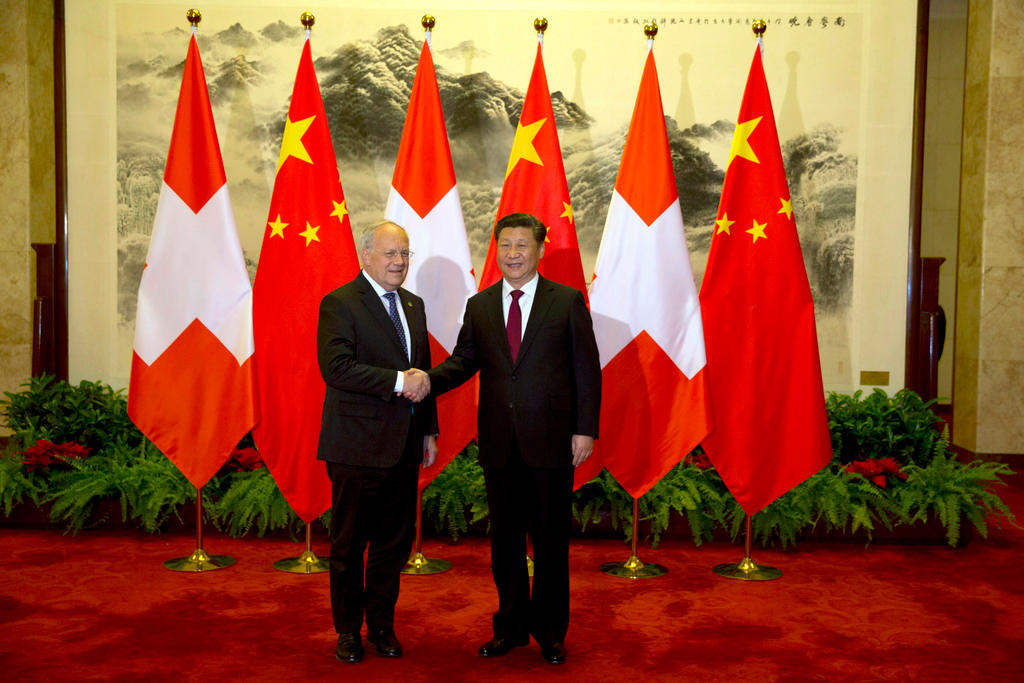
More
Swiss and Chinese presidents discuss direction
The globalised economy – in which China is one of the major players and beneficiaries – is at the heart of these changes. The country is also a victim of globalisation due to the resulting environmental impact and economic inequalities.
It is this collateral damage that the Chinese president seeks to minimise by tackling corruption and pollution, while strengthening the ideological control of the Chinese Communist Party. All this while in Western countries, globalisation and free-trade agreements are being denounced by thriving nationalist parties.
In Mao’s shoes
“Xi Jinping is looking to cement his international credentials ahead of the 19th congress of the Chinese Communist Party,” says China specialist Kernen. The congress is slated for the end of this year and will mark the culmination of the first five-year term of the Chinese president.
According to Kernen, while Xi Jinping’s predecessors advocated collective leadership, he has chosen to consolidate his power. “As a result, we’re witnessing the return of the cult of personality, like under the reign of Mao Zedong, a figure resurrected by Xi Jinping,” he says.
As human rights defenders and many observers point out, the regime’s control over Chinese society has grown strongly.
“In China, my partners are very careful about what they say. Fear is back,” Kernen says.
A growing fear of authoritarian tendencies in China has prompted a group of Swiss personalities to petition the Swiss parliamentExternal link, the cabinet and the WEF president. The petition text calls for “promoting a public dialogue on respect for human rights and the protection of the environment”.
The petitioners – a group of professors, entrepreneurs, journalists, lawyers, filmmakers and writers – point out that the theme of the 2017 WEF is “responsible leadership” and the forum is therefore a “unique opportunity to openly discuss” certain sensitive issues with the Chinese leader.
“Switzerland is the only developed, western economy that has succeeded in reaching a free-trade agreement with China,” says Lanxin Xiang, professor at the Geneva-based Graduate Institute of International and Development Studies.
“It is this kind of deal that China wants to have with other economic powers. Thus in both practical and symbolic terms, Switzerland has become increasingly important in this context.”
Antoine Kernen of the University of Lausanne agrees. “For Beijing, the free-trade agreement between China and Switzerland [entered into force on July 1, 2014] is a model that it would like to extend to other Western countries.”
After Brexit, the UK, which will be represented in Davos by Prime Minister Theresa May, has expressed interest in concluding such an agreement with China.
(Translated from French by Anand Chandrasekhar)

In compliance with the JTI standards
More: SWI swissinfo.ch certified by the Journalism Trust Initiative


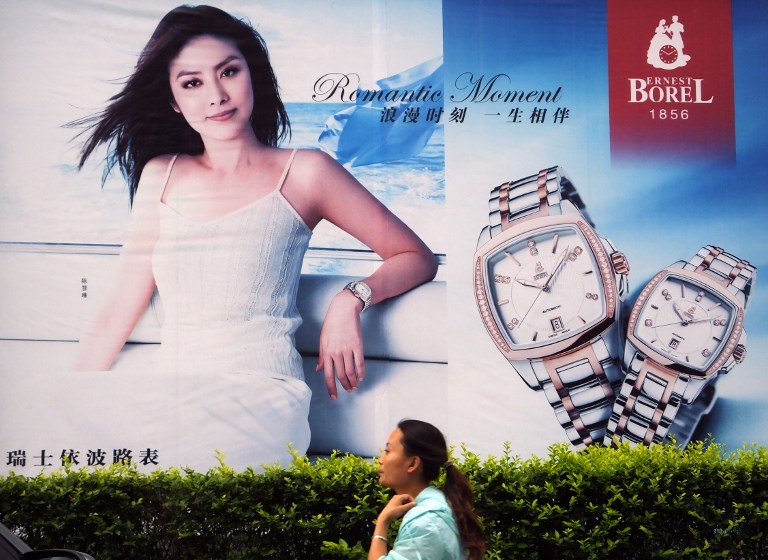
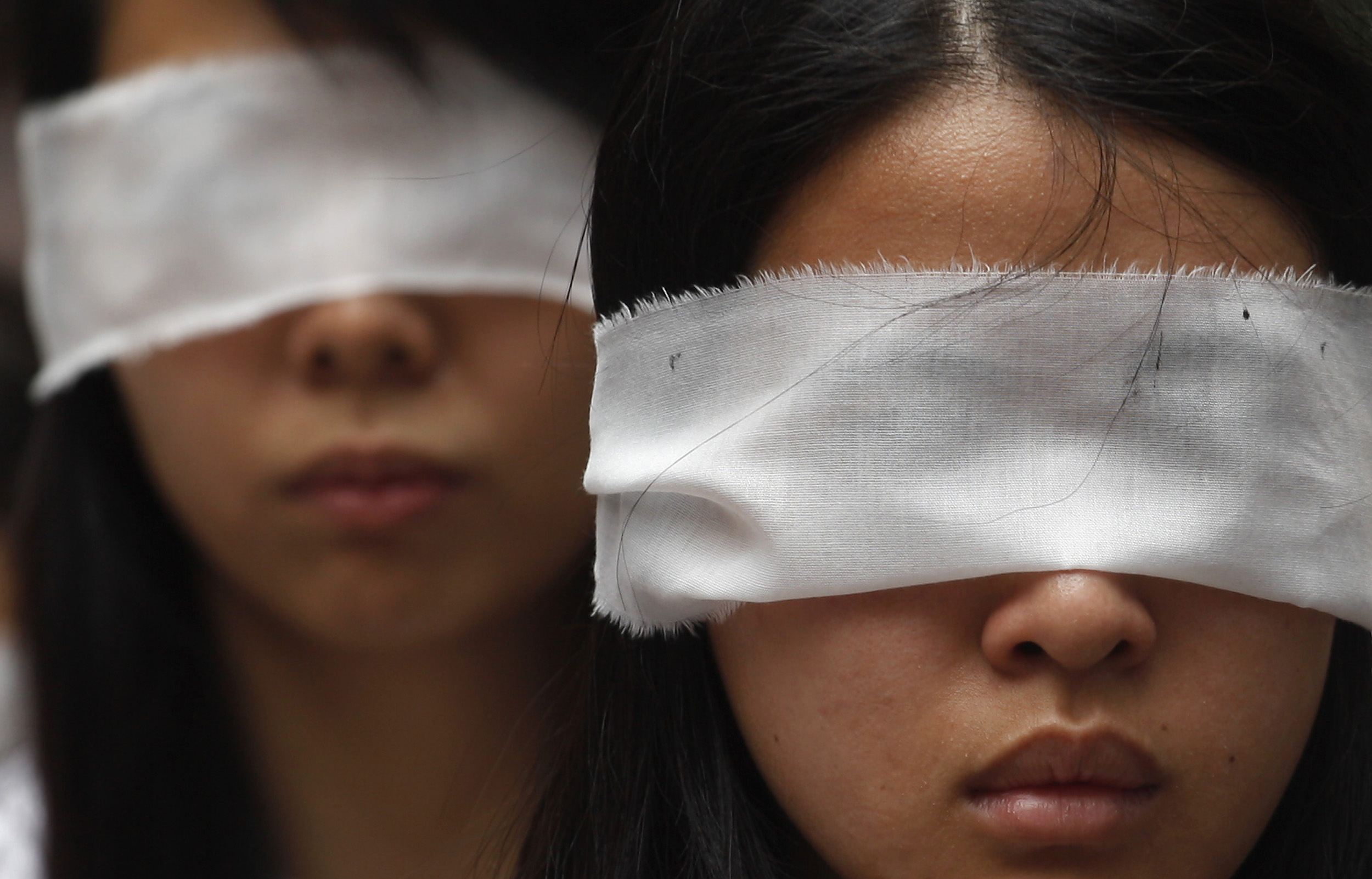
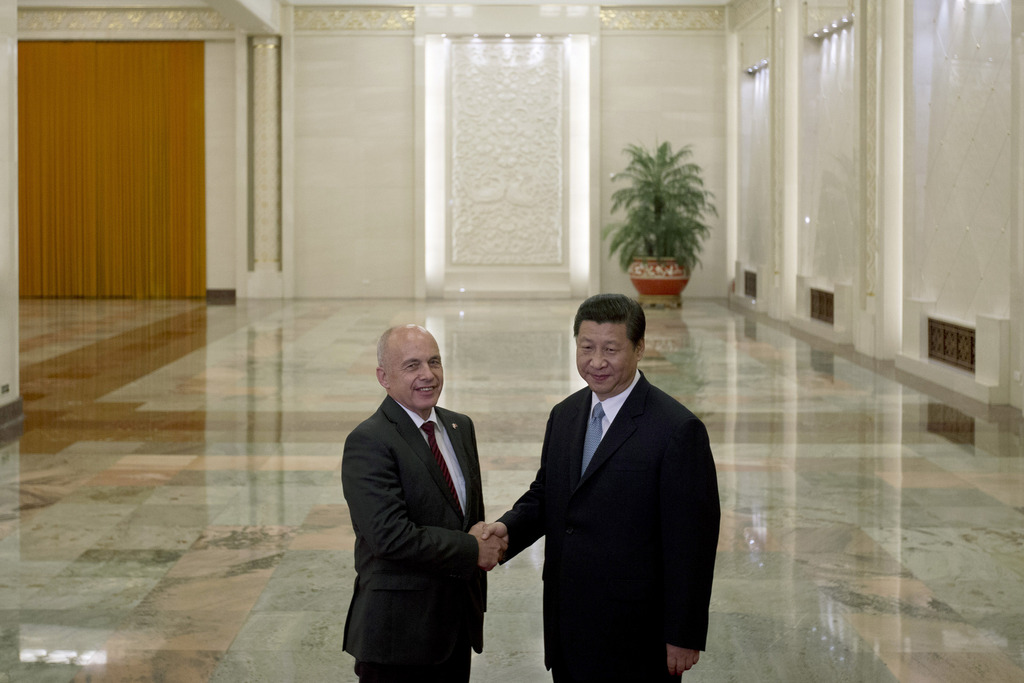
You can find an overview of ongoing debates with our journalists here. Please join us!
If you want to start a conversation about a topic raised in this article or want to report factual errors, email us at english@swissinfo.ch.